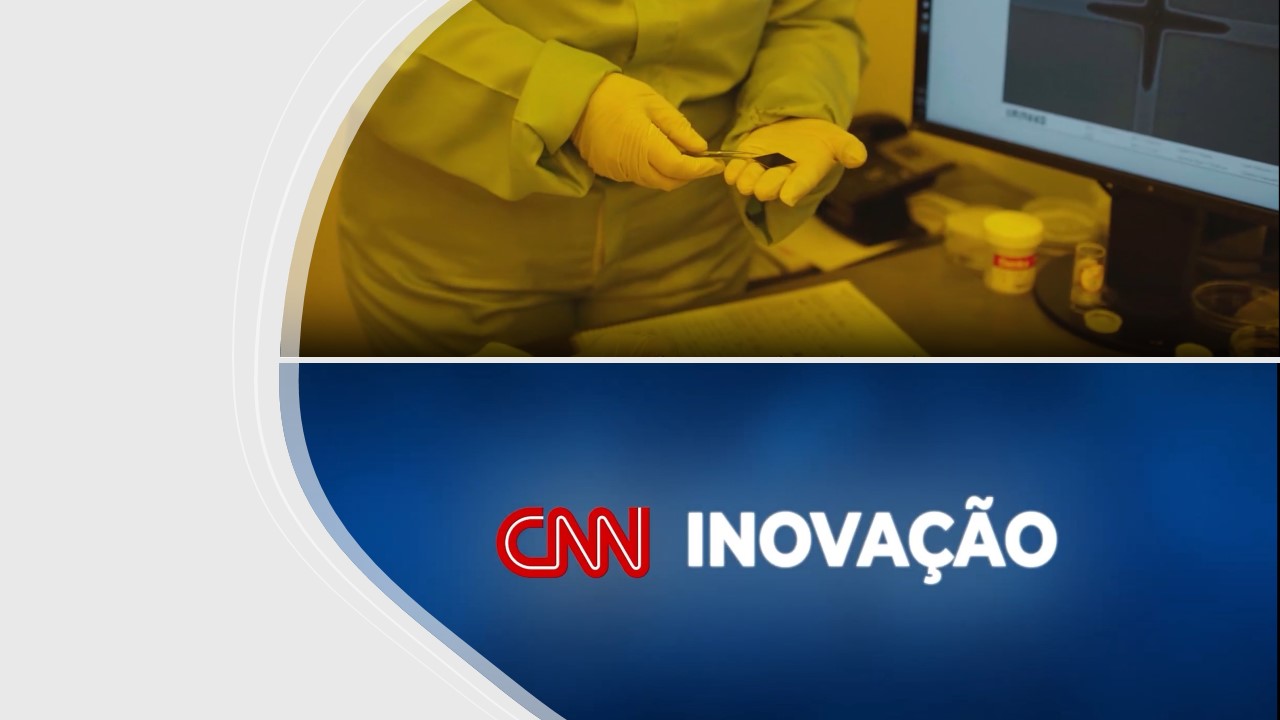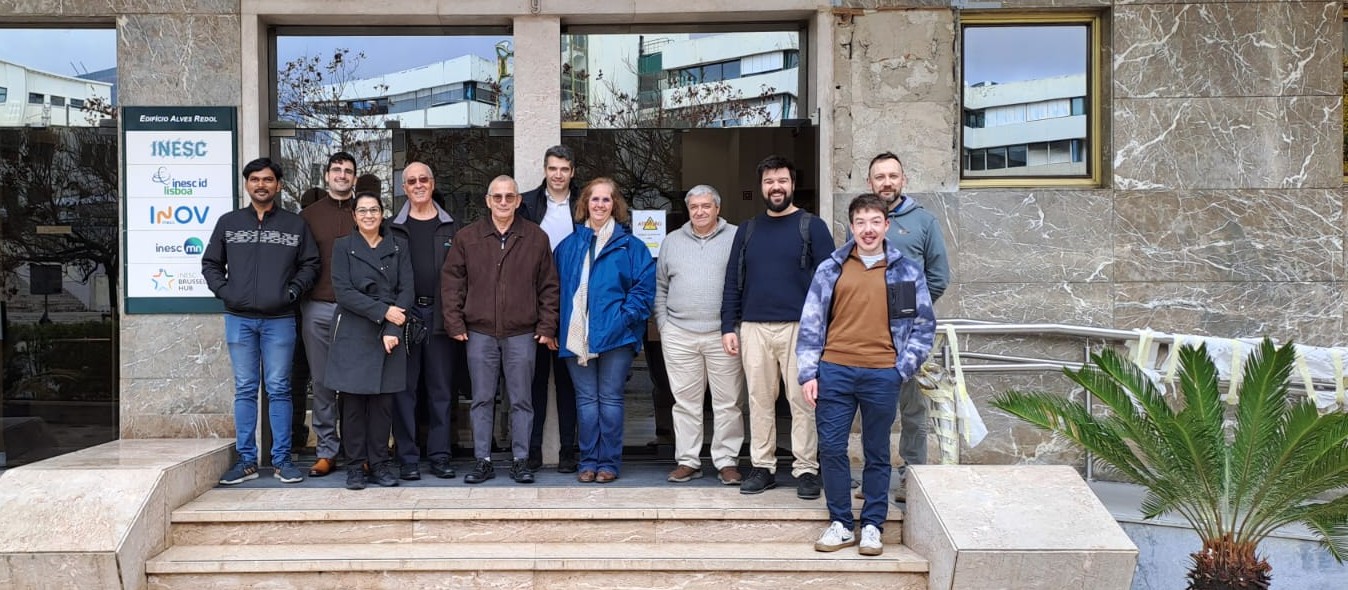The project

Who we are
MultiSpin.AI is a three-year EU-funded research project designed to enhance neuromorphic computing — an approach inspired by the information processing mechanisms of the human brain, required to execute AI algorithms— and therefore foster significant advancements in the development of Artificial Intelligence (AI). Although AI has emerged as a driving force to tackle global challenges across diverse domains in our society, it faces limitations due to existing computing hardware constraints. Our mission is to develop a radically new technology based on n-ary spintronics to surpass the current constraints imposed by conventional computing paradigms. This breakthrough will help provide a significant impact by enabling transformative applications like autonomous vehicles, robots, and medical devices.




Addressing Data Processing Challenges
We aim for this innovative neuromorphic strategy to be able of dealing with current data processing challenges by implementing a data processing speed at least 10x more efficient than current advanced neuromorphic devices, surpassing classical digital processing efficiency by at least three orders of magnitude.


Optimizing Energy Efficiency
We want this new neuromorphic approach to be capable of having a positive environmental impact, in compliance with the EU Green Deal's net-zero goals. While ensuring a high level of computational power, we want to significantly decrease the substantial costs and energy usage incurred by current processors which are required to handle large amounts of data.
Members
This innovative project is the result of a harmonious collaboration between research institutes, universities, companies, and non-profit organisations, combining a diverse range of multidisciplinary skills across Europe, all with the common goal of enhancing neuromorphic input to propel advancements in AI development.


University
Established in 1955, Bar Ilan University (BIU) is one of Israel’s largest universities, going from 70 students to 20,000 today, making an indelible imprint on the landscape of the State of Israel. BIU has achieved an international reputation for academic and research excellence, especially, but not limited to the fields of artificial intelligence, renewable energy, bio-medicine, brain sciences, cancer, cyber security, cognitive sciences, environment, quantum technologies, medicine, archaeology, nanotechnology, and advanced materials. The university has nine faculties: Jewish Studies, Medicine, Engineering, Law, Life Sciences, Exact Sciences, Social Sciences, Education, and Humanities. These faculties are active partners in Israel’s national science and technology initiatives.


Private, non-for-profit research institute
INESC MN is a private, non-for-profit R&D centre, with 30 years of experience in the operation and maintenance of a microfabrication infrastructure (class 10/100 Clean Room), whose core research activities are in the areas of nanoelectronics, magnetic thin films and nanostructures, thin film MEMS biochips/biosensors and biomedical devices. INESC MN integrates 17 PhDs, 21 PhD students, 6 process engineers, and 13 contracted junior engineers. In addition, INESC-MN provides training for Master level courses with 120 students/year, has an extensive involvement in national and European projects, and maintains a solid relationship with international companies worldwide. At the national level, INESC MN is a Research Unit evaluated by FCT as EXCELLENT, was approved as a CTI (Technology and Innovation Centre), the National Roadmap for the research infrastructures MicroNanoFabs@PT, founded the Microfluidics network, participates in the Associated Laboratory i4HB and is member of the Battery Cluster Portugal and the Health Cluster Portugal. INESC MN is an active member of international networks including the SpinTronicFactory, KET tools, NFFA- European Research Infrastructures, and the European Technology Platform of Nanomedicine.
University
UCLouvain or Université catholique de Louvain (also known as University of Louvain, its official English name) is Belgium’s largest French-speaking multi-site university with 19 faculties in six Belgian cities (Louvain-la-Neuve, Brussels, Charleroi, Mons, Tournai, and Namur). The headquarters of UCLouvain is in Louvain-la-Neuve, the Walloon city built to house the university. Wide range of programs: Offers bachelor’s, master’s, and doctoral degrees in various fields, including sciences, humanities, engineering, and social sciences. International outlook: Welcomes international students and boasts a diverse student body. Research focus: Renowned for its research activities, with numerous institutes, centers, and labs contributing to scientific advancements. Overall, UCLouvain is a comprehensive university known for its academic excellence, international reach, and commitment to research and innovation.


SpinEdge AI accelerator – Spintronic analog instant AI
SpinEdge is an Israeli company focused on developing AI accelerators using spintronic analog technology. Their core product enables ultra-fast, energy-efficient neural network inference for Edge AI tasks. By utilizing spintronic resistive memory, SpinEdge processes data in its analog form, avoiding costly digitalization. This results in up to 100x performance gains and 1000x energy efficiency improvements compared to traditional architectures. The technology is designed for low-latency responses, making it ideal for applications that require instant processing in energy-constrained environments.
In the project the objective are: 1. demonstration of AI n-ary inference and 2. Validation of neural network inference through simulations and experiments, focusing on performance improvements per watt.


Developing fully electric vehicles for sustainable urban mobility
I-FEVS (Interactive Fully Electrical Vehicles) is focused on developing innovative, fully electric mobility solutions that prioritize safety, affordability, efficiency, and sustainability. Founded in 2011, the company has developed a range of products, including urban mobility vehicles and electric bicycles. It is recognized for its unique technological solutions and strong emphasis on ergonomic design and low total cost of ownership. With over 140 patents, I-FEVS aims to make electric vehicles more accessible and sustainable, collaborating with European research institutions and industry leaders.
In the I-FEVS project, the objective is to analyse the potential of industrial applications, specifically focusing on the constraints imposed by IoT. This involves applying neural networks to real-life tasks. The project aims to assess how well these technologies perform in environments with limited computational resources and network capabilities, which are typical in IoT systems.
Supporting strategically oriented innovation for business and societal impact
AMIRES is a consulting company that specializes in research, development, and innovation projects. They focus on three primary sectors: Energy and Sustainability, Deep Tech, and Health and Biotech. AMIRES helps clients form consortia to drive product or service innovation, aiming for significant commercial and societal impact. They support the entire innovation process, from initial invention through to commercialization. The company’s expertise lies in aligning strategic goals with practical outcomes, especially in technology-driven projects.
In the project AMIRES is responsible for dissemination, communication and exploitation. Which involves sharing project results with stakeholders (scientific, industry, and public) to boost awareness and knowledge. Focuses on promoting the project and its benefits to a broader audience, raising awareness about its goals, progress, and outcomes and support in exploitation activities such as to ensure that the project’s results are used commercially or non-commercially, ensuring sustainability, market readiness, or policy impact.
Want to know more about us?
Methodologies & processes
Research Framework
Artificial Intelligence has progressively permeated society, effectively addressing societal issues across diverse domains like healthcare, food security or climate change. Despite substantial advancements in the past decades, the development of AI faces several limitations due to existing computing hardware constraints.
The growing interest in biologically inspired computing paradigms has led to the development of neuromorphic systems, striving to mimic the way the human brain information processing. Such systems have been designed to address some computing challenges such as the von Neumann bottleneck, scalability limits, intensive data processing, high cost, or energy use. Yet Neuromorphic hardware also faces constraints in terms of efficiency, accuracy, energy, cost, and scalability.
MultiSpin.AI research focuses on fabricating and developing an n-ary spintronics-based edge computing co-processor to significantly enhance neuromorphic capabilities, particularly in terms of energy consumption and processing speed. This research involves a multi-step approach, encompassing the creation of multi-level synapses, multiscale modeling of spintronic devices, advanced characterization techniques, algorithm development, and adaptation, culminating in the testing of the final proof of concept to address the specified challenges.
Workflows & Processes
The research involves four main stages.
The first step is to design and manufacture the post-von Neumann architecture of MultiSpin.AI, distinct from the currently dominant von Naumann. This implies fabricating special magnetic structures (SLMMS and M2TJs), as well as a 4×4 array of 4-level M2TJs. In parallel, we are developing a roadmap for integrating these structures with CMOS embedded electronics.
The second step consists of characterising and testing the SLMMS and M2TJs created in the first stage. The aim is to validate the properties of the SLMMS and M2TJs and to determine the number of usable states and the switching speed.
The third step is the design, validation, and specs of the AI algorithms. Objectives include error reduction, theoretical framework development, and preparation for a tangible proof-of-concept stage. The work involves adapting algorithms to accommodate the complexity of components, testing on standard machine learning tasks, and designing a simplified version for initial implementation. The goal is to evaluate the performance of MultiSpin.AI in real-world scenarios and assess its ethical aspects using an assessment framework.
The fourth and last step is the PoC demonstration. We integrate the crossbar, essential for real-time Artificial Intelligence calculations, into a typical architecture, by designing a miniature prototype electronic board with advanced spintronics technology. We will evaluate and confirm the performance of a miniature prototype crossbar that incorporates advanced spintronic technology. The aim is to verify that this device operates in accordance with the expected standards and functionalities.
Iterative Development
The research adopts an iterative approach, emphasising a dynamic process of continuous improvement based on insights, experiments, and feedback. This approach enables the research trajectory to be constantly adjusted in line with the latest information and results obtained at each stage of the process. These efforts are carried out in collaboration with various partners, each contributing their expertise at different stages to address the specific challenges. By incorporating this collaborative approach, the project engages in a repetitive cycle of analysis, re-evaluation, and adaptation, encouraging the evolutionary and optimal development of results.
Ethical Considerations & Guidelines
Ethical Framework
MultiSpin.AI is committed to an ethical framework that encompasses several areas, from environmental concerns to equity, human rights and social responsibility. This approach guides our different actions as we strive to develop and deploy our technology with good impact on society. Discover our ethical framework and join us in fostering positive change.
– Environmental Commitment: we guarantee minimal environmental impact by ensuring no negative effects on climate, water, air quality, biodiversity and ecosystems. We responsibly manage any ‘hazardous’ materials used in the development of our technology, in accordance with environmental health and safety policies.
– Equity and Inclusion: we acknowledge the challenges posed by gender disparity in AI products, which can result in unfavourable user experiences or endanger rights and lives. To mitigate this, we employ a methodology that emphasizes diversity in our datasets, particularly regarding gender and ethnicity, when investigating the application of our extended MultiSpin.AI crossbar co-processor. Through rigorous analysis and reporting of performance metrics across different demographics, we strive to identify and address any factors contributing to disparities, thus ensuring the generalizability of our results.
– Human Rights: our validation AI will further validate MultiSpin.AI’s scale-up potential on real-world tasks, such as wake-up word detection or anonymized person detection, without raising ethical concerns related to human rights.
– Reliability and Technical Resistance: to ensure a reliable and robust MultiSpin.AI technology, we are implementing various measures such as optimizing specific resistance parameters, developing error-correction algorithms, and creating technologies capable of detecting and reporting functionality issues, ensuring our technology to operate as intended.
– Social Responsibility: our engagement with a diverse range of stakeholders, including decision-makers, the public and advocacy groups, reinforces the transparency but also contributes to a positive societal impact. We aim to make a positive difference across various aspects of society, encompassing economic growth, environmental sustainability, and the overall well-being of the community.
– Transparency: through the transparent dissemination of our research in peer-reviewed open-access journals and the sharing of results via platforms like Open Science Framework and Zenodo, we actively foster collaboration and knowledge exchange within the scientific community. A crucial emphasis is placed on the accessibility of our model code and simulation results, prioritizing transparency and significantly contributing to the reproducibility of our work.
Safety & Privacy Measures
MultiSpin.AI favours decentralised processing, which enhances confidentiality, by granting users greater control over their data and minimizing the risk of misuse or compromise. All personal data collected is anonymised and stored in accordance with best practice in data management and protection, enabling direct link between data and individual identity. We also secure our data management and transparency by adhering to FAIR principles and developing a comprehensive Data Management Plan (DMP). This DMP will outline how we generate, use, and make data accessible for verification and reuse, as well as our plans for curation and preservation.
We are open to new collaborations
Innovation & Breakthroughs
- All Posts
- Innovation & Breakthroughs


Infographics & Diagrams
Future directions
MultiSpin.AI project is poised to revolutionise AI inference through its innovative spintronics co-processor technology. Here’s a glimpse of the effects and impacts the project envisions:
Transformative Positive Effects
o Proof of Concept (PoC) of an n-ary spintronics co-processor.
o Published know-how in spintronics computing and reservoir computing algorithms.
o Feasibility proof for scaling up the co-processor.
o Development of reservoir computing formatted datasets and policy recommendations.
o Creation of reservoir computing formatted datasets.
o Training of newly skilled researchers.
Economic Impact
o Contribution to the manufacture and commercial availability of high-performance, cost-effective, and energy-efficient inference chips.
o Potential market growth in the global neuromorphic computing market.
o Targeting various customer segments, including autonomous vehicles, wearable healthcare devices, and consumer electronics.
Environmental Impact
o Reduction in emissions from machine learning inference.
o Significant sustainability benefits through energy efficiency improvements.
Societal Impact
o Advancements in AI-powered solutions for societal challenges such as healthcare and mobility.
o Enhanced safety and efficiency in transportation.
o Improvement in healthcare outcomes for neurological disorders.
Future Trajectory
o Commercial readiness expected in 6 – 8 years, followed by industrial adoption.
o Development of high-fidelity prototypes with millions of state M2JT cells.
o Experimental validation through real-world inference cases.
o Pilot deployment in operational environments, particularly in e-vehicles.
o Licensing and commercialization by SME partners.
o Funding sought through public EU or national calls and private venture capital.
Involvement and Empowerment
o Training and development of early-stage researchers.
o Active exploitation and commercialization of project results by hi-tech start-ups, SpinEdge, and I-FEVS.
Our supporters
We express our sincere gratitude to the individuals and organizations that significantly contribute to the advancement of our academic pursuits.
Funders
European Union: This project is funded by the European Union. Views and opinions expressed are however those of the author(s) only and do not necessarily reflect those of the European Union, the European Innovation Council or the SMEs Executive Agency (EISMEA). Neither the European Union nor the granting authority can be held responsible for them.


Collaborators
EDIH: As part of our project, we plan to establish strategic partnerships with European Digital Innovation Hubs (EDIH).


